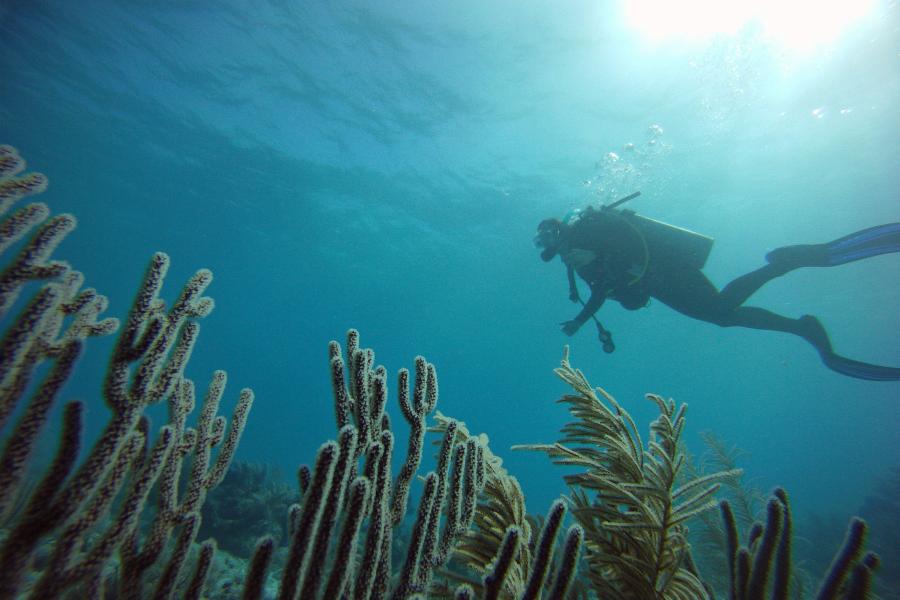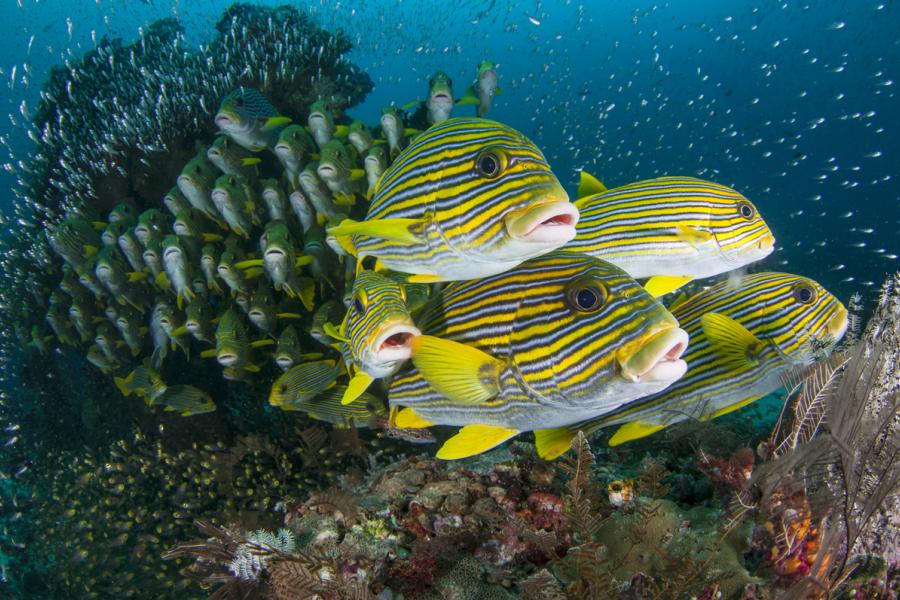About This Course
Marine top predators, including marine mammals, seabirds, and sharks, form important components of marine ecosystems. They are typically wide ranging and depend on patchy prey which are closely tied/linked to a dynamic physical marine environment. Therefore, an understanding of how marine top predator populations associate with the marine environment is crucial for their conservation. However, researching and monitoring these often inconspicuous animals that spend part or all of their lives underwater requires specialist field, technological and quantitative approaches that considers their unique physiology, behavior, in parallel with their
marine environment.
This challenging course is unique in its multi-disciplinary approach - it brings together world-leading expertise in marine top predator ecology and oceanography at the School of Ocean Sciences.
This Marine Top Predator Ecology MSc is a full-time, one-year course, consisting of two taught semesters and an independent research project. You will study specialist modules, introducing both field and quantitative skills in the study of marine top predators and oceanographic research, and advanced topics in generic quantitative marine ecology. You will start the initial preparatory work for the research dissertation in early January, although most of the work will occur from late May to September.
Why choose Bangor University for this course?
- The subject content is of great relevance to today's needs in terms of marine conservation and offshore development.
- The course links oceanography with marine top predator ecology.
- You will gain high quality quantitative skills.
- We have excellent laboratory and sea-going facilities.
- We are in the ideal local environment for the study of marine top predators.
Course Content
What will you study on this course?
Through the specialist modules, you will be trained in key quantitative approaches and will be introduced to contemporary methods in top predator monitoring and research, allowing you to document their abundance, distribution and behaviour in relation to their physical habitat.
The specialist modules take advantage of the rich and abundant communities of marine top predators in north Wales, and you will be studying animals in a range of settings and locations. These will be supplemented by fundamental modules covering ecological and oceanographical topics, providing you with the knowledge needed to pursue a range of careers researching, monitoring, or conserving these species. The fundamental modules will also explore the diverse habitats around the School of Ocean Sciences and will utilise our research vessel and small boats. You will then apply the quantitative and practical skills you have gained in an independent project, where you will pursue a research topic of interest over the summer period.
You will pick-up a lot of specialist skills taught in the course, including:
- Line and Strip-Transect Surveys
- Shore-based surveys
- Species Distribution Modelling
- Marine Mammal Photo-ID
- Mark-Recapture Analysis
- Movement Modelling from Biologging data
- Population Modelling
- Acoustic monitoring
- In-situ Oceanographic measurements
- Remote-sensed Oceanographic measurements
You will also be taught valuable skills that prospective employers are seeking, such as:
- R Statistics
- MATLAB
- Advanced ecological modelling
- GIS
How will you learn on this course?
As a postgraduate Masters student of the School of Ocean Sciences, most of your teaching will occur in the dedicated Masters Suite on the Menai Bridge site. Most of your lectures will be held there, and there are seminar rooms, computer areas and general learning spaces also available exclusively to the MSc classes. Some teaching, such as computer practicals, take place on the main Bangor site.
Our MSc programmes all have a strong emphasis on practical activity, both laboratory and fieldwork - with the latter being based around our natural local surroundings. You will have the opportunity to sail on our research vessel, the Prince Madog, to collect data and samples.
The School has a vibrant teaching and research culture that you will experience and contribute to. The latter forms an integral basis for our postgraduate teaching and you will typically join active researchers as part of your own personal research project.
You will experience our forward-thinking teaching culture and be taught using a range of methods and assessment types that will develop your subject-based, industry-relevant skills.
Specialist course facilities
- The University's Research vessel - the RV Prince Madog.
- State-of-the-art oceanographic and ecological field data acquisition systems.
- Specific, Masters Learning Suite within the School of Ocean Sciences.
Entry Requirements
A minimum 2.i BSc (Honours) undergraduate degree (or equivalent) in biological or oceanographic sciences. Applicants are expected to demonstrate a clear interest in advanced quantitative approaches and modelling in animal ecology and/or oceanography in their personal statement. A good range of IT skills are required, including the use of word-processing, spreadsheets, presentation software packages, and the use of email and the internet.
Previous experience of coding (e.g. R, Python, Matlab), spatial data analysis (e.g. ArcGIS, QGIS), or graduate-level statistics or calculus preffered but not required for this course.
Applicants with equivalent professional qualifications and/or relevant practical experience and applications from working professionals with non-graduate qualifications will be considered on an individual basis. Please contact us for further information or for an informal discussion.
Applicants who do not speak English or Welsh as their first language must provide satisfactory evidence of knowledge and understanding of written and spoken English: IELTS 7.0 (with no element below 6.5).If you have not been able to achieve the minimum English language level required for this course, you may apply to undertake a Pre-sessional English course at Bangor University. For full information on English language requirements, the range of accepted English language proficiency tests accepted and intensive English language courses available please visit our English Language Requirements pages.
Applicants are advised to apply early as this course has limited capacity.
Careers
|
The Marine Top Predator Ecology MSc provides sound scientific knowledge of the marine environment and places strong emphasis on the key skills which are highly regarded by employers. |



